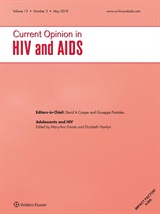Posted on January 01, 2018
Source: Current Opinion in HIV and AIDS

Koay WLA, Siems LV, Persaud D
PURPOSE OF REVIEW:
This article discusses the interaction between HIV infection, the gut microbiome, inflammation and immune activation, and HIV reservoirs, along with interventions to target the microbiome and their implications for HIV remission and cure.
RECENT FINDINGS:
Most studies show that HIV-infected adults have a gut microbiome associated with decreased bacterial richness and diversity, and associated systemic inflammation and immune activation. A unique set of individuals, elite controllers, who spontaneously control HIV replication, have a similar microbiome to HIV-uninfected individuals. Conversely, exposure to maternal HIV in infants was shown to alter the gut microbiome, even in infants who escaped perinatal infection. Emerging research highlights the importance of the metabolomics and metaproteomics of the gut microbiome, which may have relevance for HIV remission and cure. Together, these studies illustrate the complexity of the relationship between HIV infection, the gut microbiome, and its systemic effects.
SUMMARY:
Understanding the association of HIV with the microbiome, metabolome, and metaproteome may lead to novel therapies to decrease inflammation and immune activation, and impact HIV reservoir size and vaccine responses. Further research in this area is important to inform HIV remission and cure treatments.